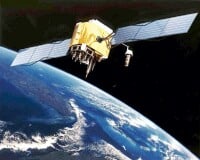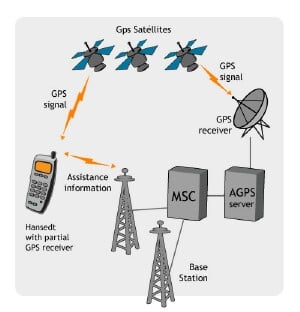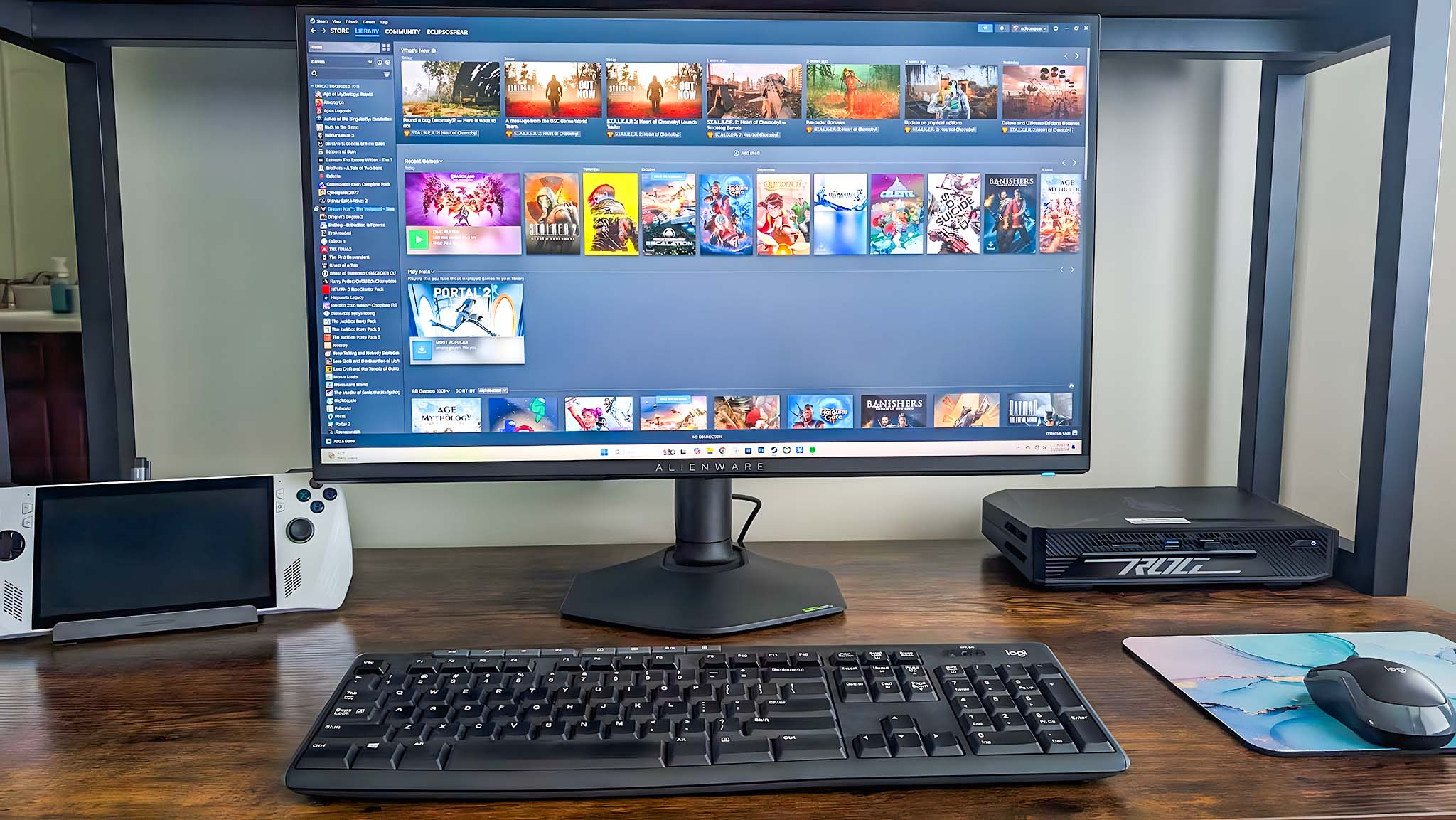GPS vs. aGPS: A Quick Tutorial

All the latest news, reviews, and guides for Windows and Xbox diehards.
You are now subscribed
Your newsletter sign-up was successful
With discussions and speculation about what features the new Treo 800w will have, the convoluted and very confusing issue of aGPS versus GPS naturally arises and which, if either, the 800w will include. So what is aGPS? How does it differ from real GPS if at all? We'll fill you in on the full skinny -- which sadly can be anything from "just e911" to "Better than standard GPS."
Read on to learn what all of these terms actually mean and what it means for Windows Mobile users in general as this technology spans CDMA and GSM across the U.S on every device.
aGPS vs. GPS: The Basics
Okay, first let's do the basic definitions: aGPS = assisted global positioning system, while just regular GPS is non-assisted.
So who's assisting and why does it matter? When you use a GPS system and you turn it on, it needs to find orbit and clock data for the relevant satellites, this in turn results in what is called TTFF, or Time To First Fix how long before you get your location pinpointed. This initial TTFF is often called a cold start and on SiRF III systems (the latest GPS systems available), it can take anywhere from 30 seconds to a couple of minutes to acquire a signal. That time is dependent on your location, amount of interference and horizon information: open fields are faster than canyons or urban environments where buildings can interfere with the satellite-receiver line of site.
But when you use assisted GPS this whole process is much faster. Very often cellular network towers have GPS receivers (or a base station nearby) and those receivers are constantly pulling down satellite information and computing the data. This data is then passed on to the cellular phone (when requested) and acts like a cheat since the relevant satellites to your location are already identified and all that GPS computations is handled by 3rd party computers. This is the result of such a system, to you the end user:
- Faster location acquisition
- Less processing power is required by the device
- Saves battery life
- Location acquisition indoors or in non-optimal environmental settings

Sprint describes how their system is supposed to work from their online FAQ:
Q: What is Assisted GPS? How do you find me if only two satellites are available?
All the latest news, reviews, and guides for Windows and Xbox diehards.
A: To meet the defined industry standards, a precision location fix requires a minimum of three GPS measurements. The term "Assisted" refers to how Sprint network resources are used to provide a more robust measurement when only two satellites are visible.
- Precision fix in tens of seconds.
- Very High accuracy (typically 5m-50m).
- Line of sight to three satellites is not required as in regular GPS technology, but two satellites must be visible for a precise AGPS fix.
- GPS chipset required in device. (All Sprint phones sold since Jan 2002 have the GPS chipset. Contact your Sprint account representative for additional information.)
This is why many of us in the forums often cringe when someone suggests that having a standalone SiRFIII chip in a phone is preferable to an aGPS system, although the confusion is quite understandable and that brings us to our next point: the caveats.
Caveat #1: aGPS configurations
This story of aGPS so far seems fairly reasonable and straightforward, but alas it is not. See aGPS is not some monolithic, written-in-stone-standard. In fact, Qualcomm, who makes the most popular aGPS chips (called GPSOne) has four different possible configurations for aGPS. How aGPS is actually implemented on the device appears to be up to the device OEM/cellular carriers.
These four options are:
- Standalone - Your handset has no connection to the network, and uses only the GPS satellite signals it can currently receive to try and establish a location.
- MS Based - Your handset is connected to the network, and uses the GPS signals + a location signal from the network.
- MS Assisted - Your handset is connected to the network, uses GPS signals + a location signal then relays its 'fix' to the server, which then uses the signal strength from your phone to the network towers to further plot your position. You can still maintain voice communication in this scenario, but not 'Internet/Network service' ie Web Browser, IM, streaming TV etc..
- MS Assisted/Hybrid - Same as above, but network functionality remains. Normally only in areas with exceptional coverage.
Standalone mode is important. This means you do not need the carrier network at all to use GPS and usually you can install any GPS mapping software to boot. This is how the HTC Tilt and modern BlackBerries work and the Sprint Q9c (a review of which will be posted on WMExperts next week). Here there is virtually no difference between a standalone SiRFIII GPS system and a standalone (aka autonomous). The fact that the Sprint Q9c operates in standalone should be a sign of how Sprint plans to adopt aGPS systems in their Windows Mobile lineup (read here and here regarding possible updates for GPS for the Mogul and Touch). Interestingly, someone came up with a hack to enable the assistance servers for the Q9c to give all the benefits of a true aGPS system.
So which configuration of aGPS is important to how you can utilize the service. If it 100% relies on assistance-servers, then using it off-network is not an option, which may be the case with the BlackBerry 8830 (Sprint Worldphone):
Q Does GPS work internationally?A No, the GPS chipset on the 8830 is disabled when the device is in GSM/GPRS mode due to Qualcomm requirement.
Caveat #2: The role of the mobile carriers
Now for the other shoe to drop: the carriers. Every modern cell phone has an aGPS chip on it because of the enhanced 911 requirement, which is also why you don't have many phones with a separate SiRFIII chip on board: it is redundant and expensive.
But on Sprint, Verizon and some other carriers like AT&T they have devices with aGPS on board that is not accessible to the end-user for any purpose except for e911 (like the ppc-6700 or the Treo 700wx). Now why this is the case is a matter of debate and a lot of speculation, which ranges from the carriers have purposefully disabled this feature to the APIs were not ready (API= Application Programming Interface) or maybe even a combination. Some have also suggested that these devices need an internal antenna plexed to the chip in order to gain a satellite signal, although since cheap flip phones on Sprint can do aGPS, this remains controversial. Regardless, the fact that simple flip phones could do aGPS for mapping and $500 WM phones cannot, rubbed many in the mobile community the wrong way.
The point of this caveat is that it is up to the carriers ultimately do decide on whether certain devices have:
- Full, autonomous aGPS that is user accessible
- Locked down or limited aGPS (e.g. what AT&T did recently with the BlackJack II)
- Non-accessible to the end-user at all
That last option, for whatever reason, is currently the most common but it at least appears that the carriers (except for maybe Verizon who is truly draconian) are moving towards the more open system.
Wrapping Up
Hopefully you have learned how aGPS can mean everything from it does nothing except for 911 to it is superior to traditional GPS. Where new WM devices fall on that spectrum is an ongoing adventure, but hopefully you now have the knowledge to ask the right questions:
- Is the aGPS autonomous?
- It is locked down (e.g. hidden COM ports)?
- Can it use assistance servers when < 3 satellites are available?
Having answers to those will allow you to better gauge what GPS or aGPS really means.
PS Feel free to bookmark or pass this article on to others to help dispel any confusion out there on the 'net ;-)

Daniel Rubino is the Editor-in-Chief of Windows Central. He is also the head reviewer, podcast co-host, and lead analyst. He has been covering Microsoft since 2007, when this site was called WMExperts (and later Windows Phone Central). His interests include Windows, laptops, next-gen computing, and wearable tech. He has reviewed laptops for over 10 years and is particularly fond of Qualcomm processors, new form factors, and thin-and-light PCs. Before all this tech stuff, he worked on a Ph.D. in linguistics studying brain and syntax, performed polysomnographs in NYC, and was a motion-picture operator for 17 years.
